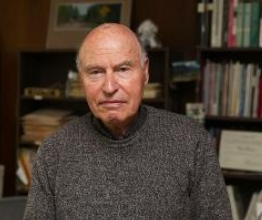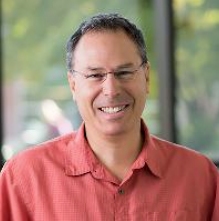YOUR BROWSER IS OUT-OF-DATE.
We have detected that you are using an outdated browser. Our service may not work properly for you. We recommend upgrading or switching to another browser.
Date: 21.11.2022 Category: conferences/seminars/lectures
Academia Europaea Wrocław Knowledge Hub invites you to the lecture by Prof Paul Slovic (University of Oregon) and Prof Scott Slovic (University of Idaho) "The More Who Die, the Less We Care: Confronting the Deadly Arithmetic of Compassion and the World's Urgent Problems. The online lecture will begin on Wednesday, 23 November, at 7 pm on the Zoom platfom.
 The webinar addresses our cognitive and affective responses to the large number of casualties and losses in disasters and wars, and communication strategies that can help transform feelings of powerlessness and indifference into strength.
The webinar addresses our cognitive and affective responses to the large number of casualties and losses in disasters and wars, and communication strategies that can help transform feelings of powerlessness and indifference into strength.
The lecture in English will also be available to watch on our YouTube channel.
The event will be moderated by Dr Wojciech Małecki, University of Wrocław Professor. The webinar will launch the research project titled „The Anthropocene: from boundaries to bonds. Interdisciplinary crossovers in knowledge development”.
Abstract:
To help society to prevent or mitigate catastrophic losses of life, immense effort and technological sophistication are employed to assess and communicate the size and scope of such losses.
This assumes that people can understand the resulting numbers and act on them appropriately. However, recent research casts doubt on this assumption. Large numbers have been found to lack meaning and to be underweighted in decisions unless they convey affect (feeling).
We respond strongly to aid a single individual in need, but often ignore mass tragedies such as genocide or fail to take appropriate measures to reduce potential losses from natural disasters. As the numbers get larger, we become insensitive; numbers fail to trigger the emotion or feeling necessary to motivate action. In some cases the numbers convey a false sense of inefficacy, discouraging us from taking valuable actions we are capable of doing.
Biases in decision making compound these problems, leading to actions that contradict our stated values toward protecting lives. Failure to understand how our minds become insensitive to great losses of human life and failure to act on this knowledge increases the likelihood that we will not take appropriate actions to reduce the risks from catastrophic events associated with violence, poverty, disease, and natural disasters.
Because of our insensitivity to large-scale humanitarian and environmental challenges, we must confront the world’s urgent problems with communication strategies aimed at turning numbness into poignancy, such as the stories highlighted at www.arithmeticofcompassion.org.
Speakers’ bios:
 Prof. Paul SIavic co-founded the research institute Decision Research, where he currently serves as President.
Prof. Paul SIavic co-founded the research institute Decision Research, where he currently serves as President.
He has been a professor of psychology at the University of Oregon since 1986. He and his colleagues worldwide have developed methods to describe risk perceptions and measure their impacts on individuals, industry, and society.
His most recent research examines “psychic numbing” and the failure to respond to global threats from genocide, climate change, pandemic disease, and nuclear war. He publishes extensively and serves as a consultant to industry and government. He received the 2022 Bower Award and Prize for Achievement in the Science of Decision Making, given by the Franklin Institute.
 Prof. Scott Slovic is University Distinguished Professor of Environmental Humanities at the University of Idaho. He served as founding president of the Association for the Study of Literature and Environment (ASLE) in the mid-1990s, and from 1995 to 2020 he was editor- in-chief of ISLE: Interdisciplinary Studies in Literature and Environment, the central journal in the field of ecocriticism.
Prof. Scott Slovic is University Distinguished Professor of Environmental Humanities at the University of Idaho. He served as founding president of the Association for the Study of Literature and Environment (ASLE) in the mid-1990s, and from 1995 to 2020 he was editor- in-chief of ISLE: Interdisciplinary Studies in Literature and Environment, the central journal in the field of ecocriticism.
He is the author, editor, or co-editor of thirty books, including the 2022 volumes Nature and Literary Studies (Cambridge University Press) and The Bloomsbury Handbook to Medical-Environmental Humanities (Bloomsbury Academic). He currently co-edits the book series Routledge Studies in World Literatures and the Environment and Routledge Environmental Humanities. Much of his research focuses on how information is collected, communicated, and received in the contexts of humanitarian and environmental crises.
Our site uses cookies. By continuing to browse the site you agree to our use of cookies in accordance with current browser settings. You can change at any time.